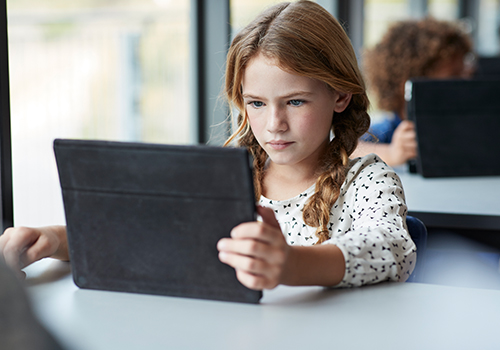Healthy Digital Habits - School Devices
About

Technology has found its way into elementary schools in the form of personal devices (tablets, laptops) for use at school and home. Most of the research on school-issued devices has focused on learning outcomes in schools and presents mixed results. Less often discussed are the possible effects on children and family processes in the home. A few studies mention briefly that some parents may have concerns about increased screen time, unrestricted Internet access, and the distracting nature of devices. In our research, we examined parent perceptions of (1) how school-issued devices are used in the home, (2) positive and negative impacts on learning and behavior/emotions specifically at home, (3) resources/training provided by schools, and (4) associations between these variables.
Funding
Publications and presentations
- McDaniel, B. T., Gullo, N., Kaiser, Z., Reining, L., Chang, I. J., & Drouin, M. (2023). School-issued devices for home use in kindergarten through 5th grade and parent perceptions of child learning, behavior, and conflict. Human Behavior and Emerging Technologies, 2023(1), 3240832. [link]
- McDaniel, B. T., Kaiser, Z., Drouin, M., Chang, I. J., & Ward, R. (2020, November 4–13). School-issued devices for home use in kindergarten through 5th grade and parent perceptions of child learning, behavior, and conflict [Poster presentation]. National Council on Family Relations, Virtual. [link]
Press
All projects